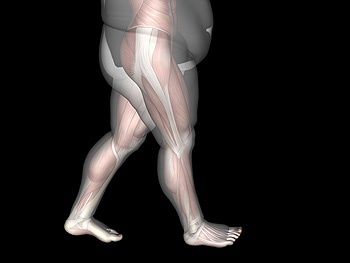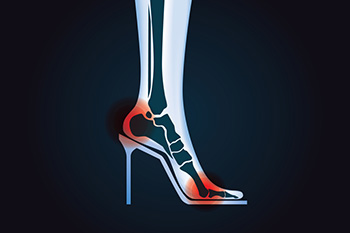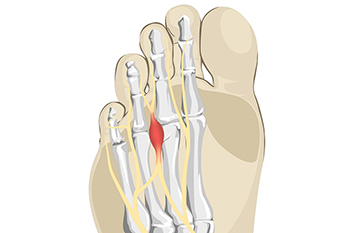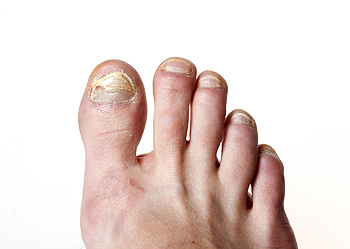Connect With Us
Blog
Items filtered by date: August 2023
Obesity, Diabetes, and Foot Conditions

Diabetes affects many people and may cause health conditions like foot ulcers to develop. If left untreated, foot ulcers can become gangrenous and in severe cases, lead to amputation. Type 2, or adult-onset, diabetes, is often linked to obesity and lifestyle factors. Obese individuals with diabetes are more apt to find it challenging to maintain healthy lifestyles, including proper eating and exercise, and may need assistance. In addition to the psychological distress this condition causes, it can also severely impact one’s overall health. If you are obese or have diabetes, and it is affecting your feet, it is strongly suggested that you make an appointment with a podiatrist as soon as possible to get the care and support needed to maintain your health.
Obesity has become very problematic at this point in time and can have extremely negative effects on the feet. If you’re an obese individual and are concerned about your feet, contact Dr. Nicholas Przystawski from Central Florida Foot Care, PA. Our doctor can provide the care you need to keep you pain-free and on your feet.
Obesity and Your Feet
Since your feet are what support your entire weight when standing, any additional weight can result in pain and swelling. Being overweight is one of the main contributors to foot complications.
Problems & Complications
Extra Weight – Even putting on just a few extra pounds could create serious complications for your feet. As your weight increases, your balance and body will shift, creating new stresses on your feet. This uneven weight distribution can cause pain, even while doing the simplest tasks, such as walking.
Diabetes – People who are overweight are at serious risk of developing type-2 diabetes, which has a drastic impact on the health of your feet. As you get older, your diabetes might worsen, which could lead to loss of feeling in your feet, sores, and bruises. You could also become more prone to various infections.
Plantar fasciitis – Pressure and stress that is placed on muscles, joints, and tendons can trigger plantar fasciitis, which is an inflammation of tissue that forms along the bottom of the foot.
If you have any questions please feel free to contact our office located in Leesburg, FL . We offer the newest diagnostic and treatment technologies for all your foot and ankle needs.
Causes, Symptoms, and Path to Recovery for a Broken Foot

A broken foot can abruptly halt your daily routine and mobility, often resulting from traumatic injuries, falls, or repetitive stress. Recognizing the signs is pivotal in seeking prompt treatment. Common symptoms can include acute pain, swelling, bruising, and difficulty bearing weight. If you suspect a break, getting a medical evaluation via X-rays or scans is essential for accurate diagnosis. Treatment options can vary based on the severity and location of the fracture. Mild cases may necessitate immobilization with a cast or brace accompanied by rest and elevation. Severe fractures may demand surgical intervention to realign bones. Physical therapy aids rehabilitation, restoring strength and flexibility. Patience is key, as recovery may take several weeks to months. Prioritizing medical guidance from a podiatrist ensures optimal healing, paving the way for a steady return to an active life. If you have broken your foot, it is suggested that you visit a podiatrist who can offer treatment methods that are right for you.
A broken foot requires immediate medical attention and treatment. If you need your feet checked, contact Dr. Nicholas Przystawski from Central Florida Foot Care, PA. Our doctor can provide the care you need to keep you pain-free and on your feet.
Broken Foot Causes, Symptoms, and Treatment
A broken foot is caused by one of the bones in the foot typically breaking when bended, crushed, or stretched beyond its natural capabilities. Usually the location of the fracture indicates how the break occurred, whether it was through an object, fall, or any other type of injury.
Common Symptoms of Broken Feet:
- Bruising
- Pain
- Redness
- Swelling
- Blue in color
- Numbness
- Cold
- Misshapen
- Cuts
- Deformities
Those that suspect they have a broken foot shoot seek urgent medical attention where a medical professional could diagnose the severity.
Treatment for broken bones varies depending on the cause, severity and location. Some will require the use of splints, casts or crutches while others could even involve surgery to repair the broken bones. Personal care includes the use of ice and keeping the foot stabilized and elevated.
If you have any questions please feel free to contact our office located in Leesburg, FL . We offer the newest diagnostic and treatment technologies for all your foot and ankle needs.
How High Heels Can Affect the Feet

High heels may add elegance and style to an outfit, but their impact on our feet is far from glamorous. The unnatural position of the foot in high heels puts excessive pressure on the toes, leading to bunions, corns, and calluses. Because the heel is elevated while high heels are worn, it can cause Achilles tendon tightness and calf muscle strain, leading to discomfort and reduced flexibility. High heels also shift the body weight forward, increasing the risk of ankle sprains and instability. Prolonged use of high heels can even alter the natural arch of the foot, leading to plantar fasciitis and other painful conditions. To reduce these risks, it is suggested that high-heel wear be limited and the shoes that are worn have low heels or supportive wedges. If you have foot pain from wearing high heels, it is suggested that you speak to a podiatrist who can help you find additional relief options.
High heels have a history of causing foot and ankle problems. If you have any concerns about your feet or ankles, contact Dr. Nicholas Przystawski from Central Florida Foot Care, PA. Our doctor can provide the care you need to keep you pain-free and on your feet.
Effects of High Heels on the Feet
High heels are popular shoes among women because of their many styles and societal appeal. Despite this, high heels can still cause many health problems if worn too frequently.
Which Parts of My Body Will Be Affected by High Heels?
- Ankle Joints
- Achilles Tendon – May shorten and stiffen with prolonged wear
- Balls of the Feet
- Knees – Heels cause the knees to bend constantly, creating stress on them
- Back – They decrease the spine’s ability to absorb shock, which may lead to back pain. The vertebrae of the lower back may compress.
What Kinds of Foot Problems Can Develop from Wearing High Heels?
- Corns
- Calluses
- Hammertoe
- Bunions
- Morton’s Neuroma
- Plantar Fasciitis
How Can I Still Wear High Heels and Maintain Foot Health?
If you want to wear high heeled shoes, make sure that you are not wearing them every day, as this will help prevent long term physical problems. Try wearing thicker heels as opposed to stilettos to distribute weight more evenly across the feet. Always make sure you are wearing the proper shoes for the right occasion, such as sneakers for exercising. If you walk to work, try carrying your heels with you and changing into them once you arrive at work. Adding inserts to your heels can help cushion your feet and absorb shock. Full foot inserts or metatarsal pads are available.
If you have any questions please feel free to contact our office located in Leesburg, FL . We offer the newest diagnostic and treatment technologies for all your foot and ankle needs.
Why Live with Pain and Numbness in Your Feet?
Causes and Effects of Morton’s Neuroma

Morton's neuroma is a painful condition that affects the nerves in the foot, specifically between the third and fourth toes. The causes of this condition can be attributed to various factors, such as wearing tight, narrow shoes that compress the toes as well as high heels which increase pressure on the forefoot. Additionally, Morton's neuroma may occur from performing repetitive activities that strain the nerves. Mild relief may be found when the shoes that are worn have a wide-toe box and low heels. Wearing specific types of orthotics may be beneficial in alleviating pain and redistributing pressure. Resting the affected foot as often as possible is important to promote healing. If symptoms persist, it is suggested that you contact a podiatrist for a proper diagnosis and a personalized treatment plan to effectively manage Morton's neuroma.
Morton’s neuroma is a very uncomfortable condition to live with. If you think you have Morton’s neuroma, contact Dr. Nicholas Przystawski of Central Florida Foot Care, PA. Our doctor will attend to all of your foot care needs and answer any of your related questions.
Morton’s Neuroma
Morton's neuroma is a painful foot condition that commonly affects the areas between the second and third or third and fourth toe, although other areas of the foot are also susceptible. Morton’s neuroma is caused by an inflamed nerve in the foot that is being squeezed and aggravated by surrounding bones.
What Increases the Chances of Having Morton’s Neuroma?
- Ill-fitting high heels or shoes that add pressure to the toe or foot
- Jogging, running or any sport that involves constant impact to the foot
- Flat feet, bunions, and any other foot deformities
Morton’s neuroma is a very treatable condition. Orthotics and shoe inserts can often be used to alleviate the pain on the forefront of the feet. In more severe cases, corticosteroids can also be prescribed. In order to figure out the best treatment for your neuroma, it’s recommended to seek the care of a podiatrist who can diagnose your condition and provide different treatment options.
If you have any questions, please feel free to contact our office located in Leesburg, FL . We offer the newest diagnostic and treatment technologies for all your foot care needs.
Prevention Methods for Toenail Fungus

Toenail fungus is generally not a serious foot condition despite its unsightly appearance. Toenail fungus thrives in warm and moist environments, such as public swimming pools, locker rooms, and similar areas. The fungus can enter the body through small cracks in the skin of the feet, so it is beneficial to wear appropriate shoes while in these areas. People who have diabetes, immune system disorders, or nerve damage may be prone to developing toenail fungus. Symptoms can include a thickening of the nail, a change in the nail shape, and in severe cases, the nail may lift or crumble. Prevention methods can include refraining from sharing shoes, towels, and socks, and it is helpful to maintain good foot care. If you have developed toenail fungus, it is strongly suggested that you confer with a podiatrist who can effectively treat this condition, which may include prescribed medication.
For more information about treatment, contact Dr. Nicholas Przystawski of Central Florida Foot Care, PA. Our doctor can provide the care you need to keep you pain-free and on your feet.
Toenail Fungus Treatment
Toenail fungus is a condition that affects many people and can be especially hard to get rid of. Fortunately, there are several methods to go about treating and avoiding it.
Antifungals & Deterrence
Oral antifungal medicine has been shown to be effective in many cases. It is important to consult with a podiatrist to determine the proper regiment for you, or potentially explore other options.
Applying foot powder on the feet and shoes helps keep the feet free of moisture and sweat.
Sandals or open toed shoes – Wearing these will allow air movement and help keep feet dry. They also expose your feet to light, which fungus cannot tolerate. Socks with moisture wicking material also help as well.
If you have any questions please feel free to contact our office located in Leesburg, FL . We offer the newest diagnostic tools and technology to treat your foot and ankle needs.

